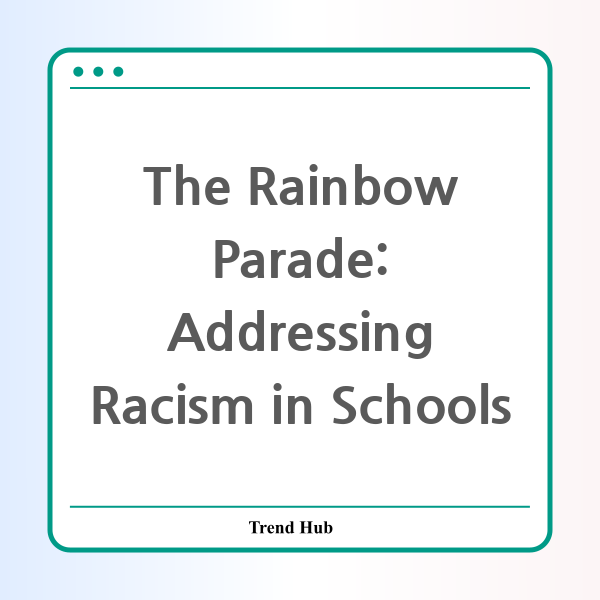* This website participates in the Amazon Affiliate Program and earns from qualifying purchases.

What happens when a simple school board meeting becomes a battleground for societal values, racism, and inclusivity? This is the reality faced by the Penfield School District recently, as tensions rose over a book designed to embrace diversity and acceptance. The book, aptly titled The Rainbow Parade, is supposed to encourage children to express themselves and accept one another's differences. Yet, the meeting discussing it was overshadowed by controversy and alarming displays that turned the focus away from the students.
On February 11, 2025, during a routine school board meeting in Penfield, New York, a man in a gorilla suit made a startling appearance, which many deemed a blatant act of racism. As parents gathered to express their concerns regarding The Rainbow Parade, this individual's choice of costume disrupted proceedings and prompted outrage within the community.
The book, described on Amazon as "a colorful journey of self-expression and acceptance," aims to bridge gaps in understanding and representation among young readers. However, a faction of parents labeled it inappropriate, culminating in heated debates at the meeting. In the midst of these discussions, the man in the gorilla suit, donning a "Make America Great Again" hat, reportedly entered the meeting to support a family friend’s child who had made disparaging comments about a fellow student.
This incident sparked uproar among community members, particularly from Penfield Democrats, who condemned the actions as "unacceptable racism and discriminatory behavior." Their statement underscored the reality that such displays of hostility not only target individuals but contribute to a larger narrative of exclusion that affects students and educators alike.
The display of a gorilla costume is alarming not only for its immediate shock value but also for its historical implications. The use of such imagery has long been rooted in racist tropes that dehumanize Black individuals. This context made the incident even more concerning, especially in a setting designed for educational governance, where Black board members and a Black superintendent were present.
Penfield Schools Superintendent Dr. Tasha Potter addressed the situation on a call, expressing her discomfort with how someone could feel at ease in such an offensive costume during an environment meant for constructive dialogue. The Penfield School Board later released a statement emphasizing their commitment to ensuring a respectful and inclusive space for all community members, reiterating that they unequivocally condemn racist behavior.
Jennifer Selever, a Penfield mother who attended the meeting, expressed her disappointment, noting that parents trust schools to care for their children and foster an environment that promotes respect. She highlighted the distress caused not only to the attendees but also to students who were left shaken by the events. Selever's comments reflect the sentiments of many parents who are concerned about the implications of such incidents on their children's education.
In response to the chaos, the Penfield School Board decided to pause public comment periods in the upcoming months to restore a positive environment for discussions. This move indicates a recognition that civility and respect are paramount in public discourse, particularly when it pertains to sensitive topics like race, identity, and inclusivity.
As we reflect on this incident, it becomes clear that communities must work together to foster safe spaces where discussions can occur without fear of intimidation or disrespect. The involvement of students in these conversations is crucial, as they bear the implications of societal prejudices and need to be equipped with understanding and acceptance from a young age.
It is imperative that we strive to create a culture of inclusion, not just in Penfield, but in schools across the nation. The Rainbow Parade and similar literature should be celebrated for their role in promoting self-expression and acceptance, not vilified under the pretense of appropriateness. The call to action for all community members is clear: engage respectfully in dialogue, support inclusive curricula, and most importantly, stand firmly against racism in all its forms.
* This website participates in the Amazon Affiliate Program and earns from qualifying purchases.